
Toddler Hydration 101
Right around the time I started solids with my two kids, a slew of questions occurred to me about what I should be giving them to drink. In part, this derived from cultural assumptions about sitting down to eat/drink, but my curiosity also stemmed from some practical considerations: are they getting enough to drink? What should they be drinking? What about constipation?
We consulted with our top nutrition scientist to fill you in on when and how to introduce water and cow’s milk to babies, what you need to know about other beverage choices for toddlers, and how to help make sure your little one stays hydrated:
When and How To Introduce Water & Cow’s Milk
Water
Babies don’t actually need anything besides breastmilk or formula for hydration purposes — infants get all the water they need from these sources, and there’s no need to offer them other liquids. In fact, doctors recommend against it before 6 months — and even after that point, they stress that formula and breastmilk are a priority over water.
Still, babies 6+ months can start to experiment with water — and it’s actually a good idea to start offering water between 6-9 months because it can take some getting used to at first. Experts suggest offering waterafter breastmilk, formula, and/or solids, and keeping it small (small sips, up to ~2-3 ounces at a time, no more than 4-8 ounces daily). You can give water in a bottle, a sippy cup, or an open cup.
Cow’s Milk
You may have already heard that babies younger than one shouldn’t drink cow’s milk — and there are two main reasons for this. Firstly, babies’ digestive systems simply aren’t developed enough to actually be able to digest the protein and fat in cow’s milk. And second, milk on its own doesn’t deliver a full nutritional profile; yet because milk is quite filling, it stands to replace breastmilk or formula, which could further contribute to nutritional deprivation. (For more on this, read here.)
Once babies pass their first birthday, though, they’re generally ready for the real deal! Pediatricians recommend whole milk for toddlers 1-2 years old because it’s rich with healthy fats that boost physical growth and brain development. Toddlers and young children older than 2 can transition to low-fat milk (1% or 2%) or even skim milk — and any parent will tell you that if you’re making a switch, do it gradually… most kids won’t take kindly to skim milk straight from whole milk!
How much should I offer? The AAP recommends that toddlers consume ~2-3 servings of dairy (*note that this is not only milk; it can be met with other dairy foods like cheese or yogurt, etc.) … and you want to avoid offering more than this because consuming too much dairy could potentially inhibit your child’s appetite for other foods and/or interfere with their body’s iron absorption. Also: dairy constipation… it happens. ☹️
BTW: Toddlers 1-3 years old need roughly 4 cups ofliquid per day.

What about other beverages?
These days, there are numerous other drinks available… some of which are great options and some of which… aren’t. Here’s what the experts have to say about milk alternatives, tea, and juice:
Plant Milks
If your toddler is allergic to cow’s milk (as some 1-3% of toddlers are) — or you opt for whatever reason to forego cow’s milk — there are now some wonderful plant-based milk alternatives. In fact, there’s quite a spectrum of options, ranging from soy milk and various nut milks, such as cashew or almond milk, to newer choices like oat milk, rice milk, coconut milk, and hemp milk.
That said, it can be a bit dizzying to try to pick from the barrel, so to speak. In the first place, many of these milk alternatives contain dozens of unnecessary additives (including flavoring, i.e. vanilla) and/or added sugars — try to find one that doesn’t. This can be a bit of a challenge, to be honest, because it requires you to check nutrition labels and ingredient lists, but it’s well worth the inconvenience because your little one really doesn’t need any of that stuff!
By the way, if it’s all the same to you, nutritionists say that fortified soy milk (with vitamin D and calcium) is technically the “best” milk alternative for toddlers because it most closely mirrors the nutritional profile for cow’s milk dairy. [There’s a handy chart breaking down the standard salient nutritional details among a variety of milk alternatives here.]
Oh! And just like cow’s milk, it’s best to wait to offer plant milks until your baby is at least one year old.
Tea
Herbal tea can be a lovely and soothing hydration source for toddlers — just make sure you brew it weakly and let it cool well enough (duh!). My kids LOVE tea, and my mom thinks it’s hilarious — so proper, hah. (It really is cute to hear a 3-year-old ask for a cup of tea, though…)
A couple of notes on tea: *make sure it’s herbal because most of the other options contain caffeine, and you donotwant a toddler running around on a caffeine kick, trust me (not that I’m speaking from personal experience or anything… I saw it… somewhere else). Also, nutritionists say that if you offer your tot herbal tea, it’s actually best to switch up the flavor/variety, namely to counterbalance any herbal therapeutic effects, but it also has the effect of introducing your child to more flavors, which is great!
Juice
In past decades, pediatricians told parents to juice it up — they speculated that juice was a great source of vitamins and a solid way to help keep kids hydrated. These days, the advice iscompletely different: medical experts now know that drinking juice comes with far more downsides than it’s worth. Namely, juice is loaded with sugar and stripped of both fiber and protein — which leads to unwanted risks and effects. The high sugar content in juices is a major contributor to dental cavities, excess calorie consumption, and even weight gain. Plus, kids who fill up on juice are less likely to eat all the things their bodies reallydo need, like fresh, whole fruits and vegetables, whole grains, legumes, nuts and seeds, water…
If you do opt to offer juice (and what parent hasn’t, really? Whether for a special treat, to ease a cranky infant’s constipation, or stave off an epic bout of dehydration on a hot summer day…):
- Wait until your baby is at least 6-9 months old.
- Try to limit it to 4-6 ounces on any given day.
- Water it down.
- Serve it from a cup, not in a bottle.
- Look for fruit juices without added sugars — there’s plenty enough as it is, LOL.

Signs of Dehydration — And How to Overcome It
Because young children aren’t able to communicate as well using their words, doctors suggest that parents keep an eye out for physical signs of dehydration. The AAP has a great summary here, but some of the early signs to watch out for are:
- Your child’s energy being down (i.e., playing less than they typically do)
- Infrequent urination (in toddlers, this would be no wet diapers/urination for 8 hours)
- A dry, parched mouth or dry, cracked lips
- Tearless crying
- Sunken eyes
More often than not, dehydration can be resolved at home — but prevention really is the best medicine… which means, hydrate, hydrate, hydrate.
*Of course, if you are worried about dehydration, please call your pediatrician.
Any parent will tell you, though, that it’s not always so easy to keep a toddler hydrated.Toddlers are learning — and deciding and telling us, hah — what foods and flavors they enjoy on an ongoing basis, every single day. What they don’t like one minute just might be their FAVORITE THING EVER the next, and what they chowed down on for breakfast they may refuse or spit out later in the day. [Parent sighing.]
The same thing goes with beverages. It can take some time for young children to grow to like certain beverages and textures (yes, drinks have texture, too!), and this is where we have to be patient and just keep offering things.
Anecdotally, many children take to milk quite readily, but WATER can be a real struggle. Here are some real-world tips and tricks from the playbook that may help out on this front:
- Offer water naturally flavored with fruits or veggies, such as berries, lemon, mint leaves, or cucumber — it looks pretty/fancy, provides a subtle aroma to the water, and spices up the taste a bit.
- Have tea time! Herbal tea is a great source of hydration, and you can squeeze in a couple of lemon drops to sweeten the deal.
- Add in a small amount of fruit juice — yes, yes, I know, I just said no juice, but a splash of juice in a cup of water for a kid who really needs to drink some water already? #noregrets.
- Try letting your child pick out a special cup or water bottle — often, this instills a sense of excitement and autonomy over drinking that totally amps toddlers.
- Offer water from an open cup (a SMALL one!) — another “big kid” incentive that many toddlers really get a kick out of.

Psst… did you know that foods can be hydrating, too? It’s true: foods can be a great source of hydration for littles. Some fruits and vegetables with high water content include watermelon, strawberries, peaches, cucumbers, oranges, apples, and tomatoes. Yum! You can even focus on hydration at mealtime by choosing recipes that incorporate liquids, like purees, smoothies, and soups. In the puree department, all of Amara’s organic baby foods are designed to be prepped using water, formula, or breast milk, so every bite is packed not only with the same nutrients and fresh flavors as any homemade dish, but literally has hydration built into it, too. For older children, our fruit-forward blends can be incorporated into your favorite smoothie recipes, and our veggie-forward blends are fantastic bases for soups and dips, both of which can be a wonderful source of hydration and nourishment. Click here for some fun, toddler-friendly, hydrating recipes including yogurt fruit smoothies, pea soup, and more!
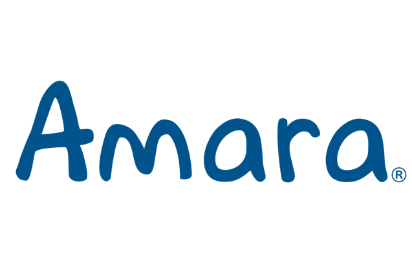
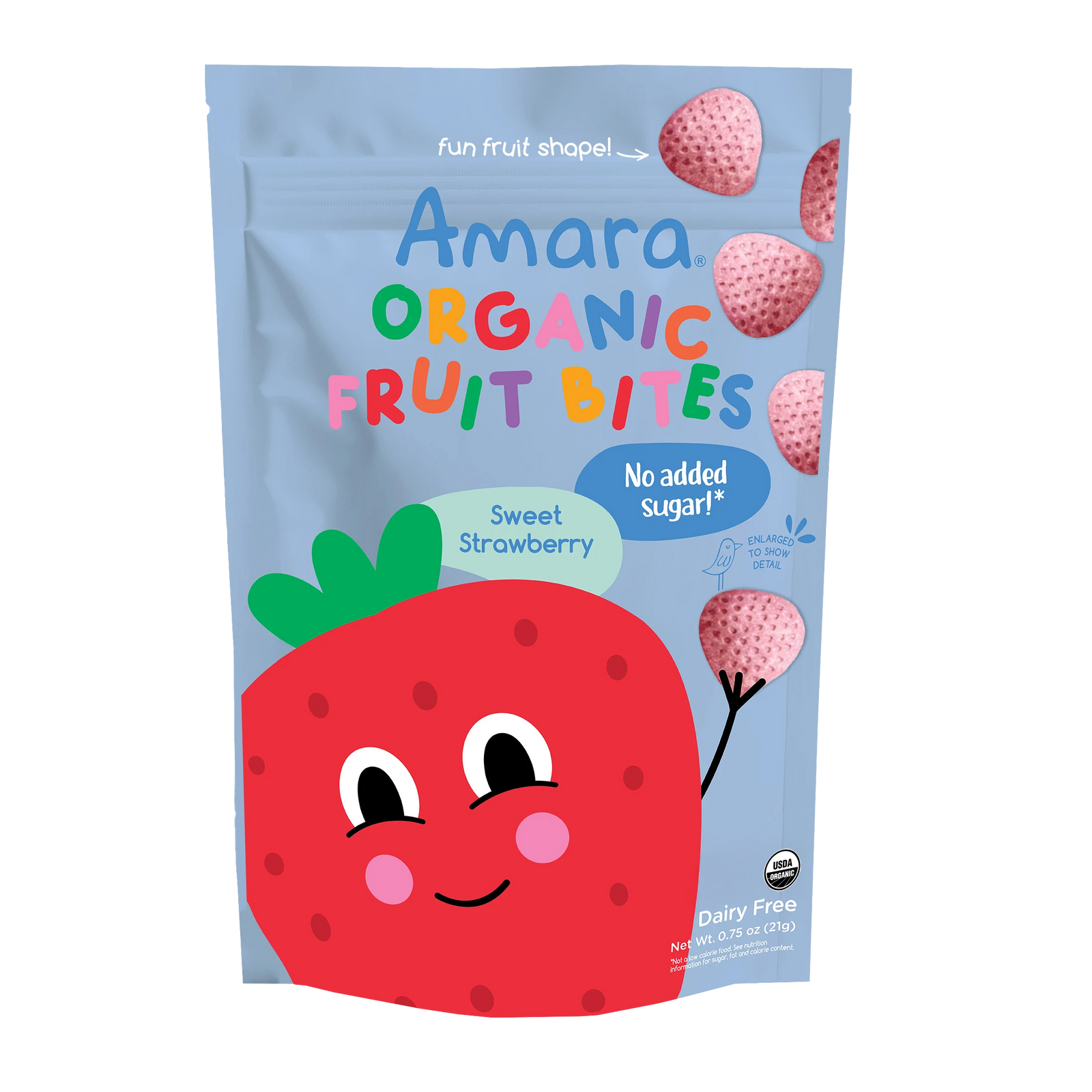


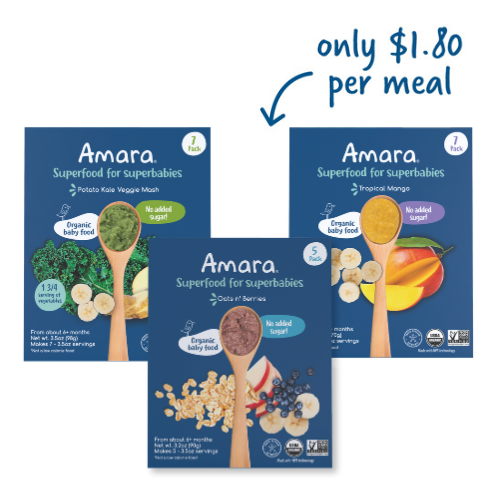
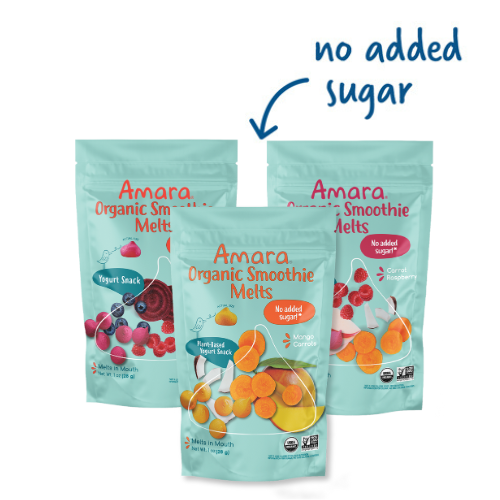
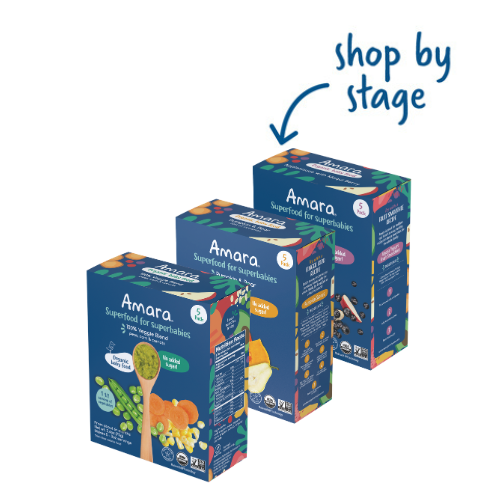
Leave A Comment